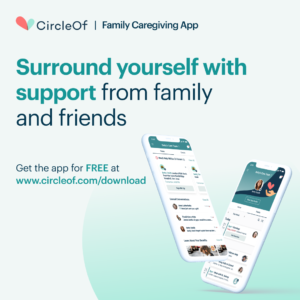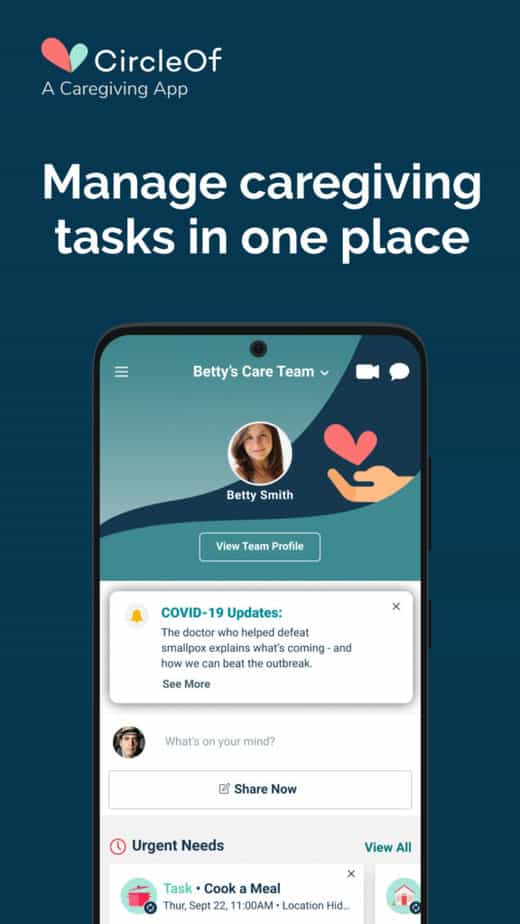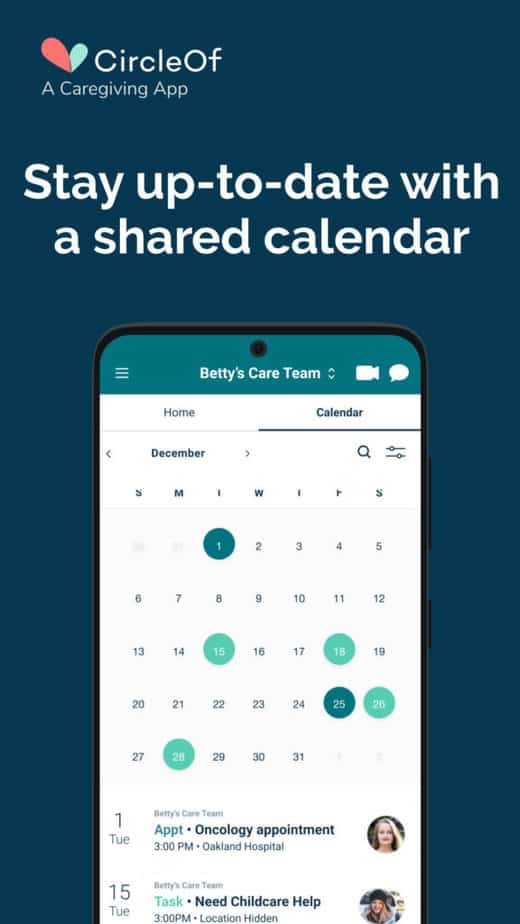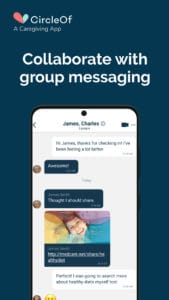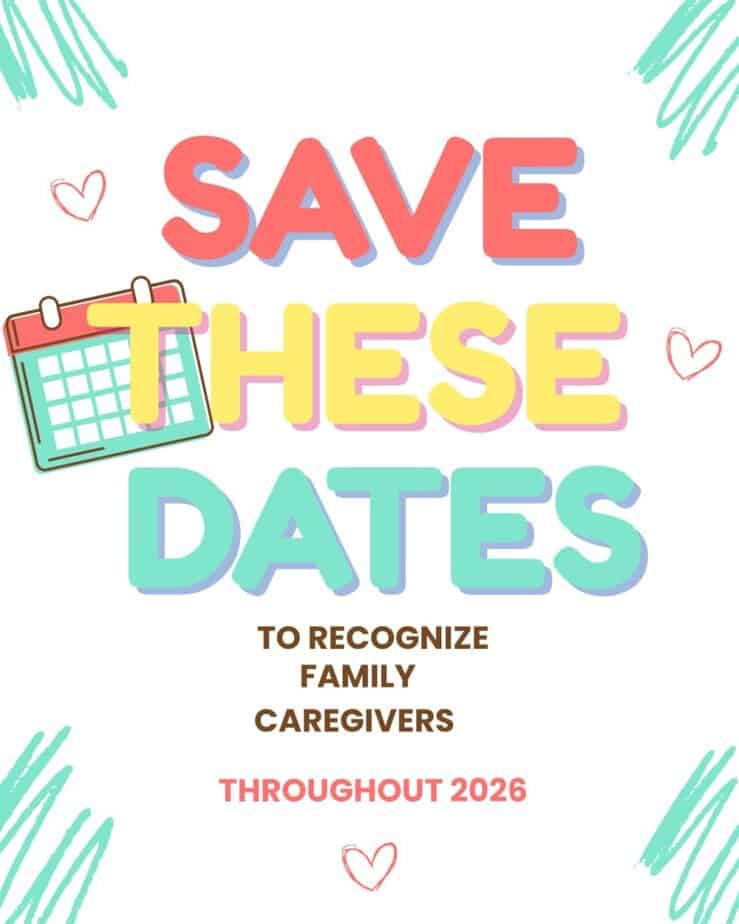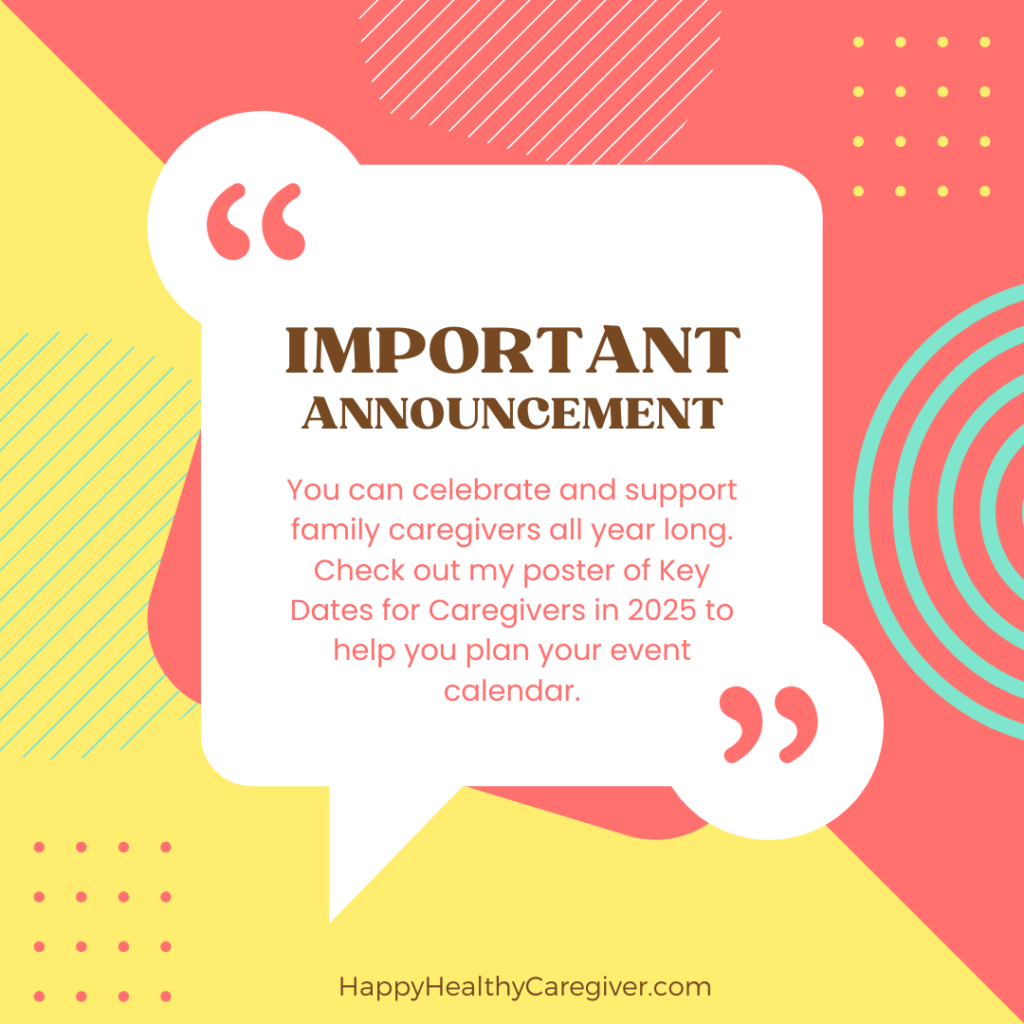This post is sponsored by CircleOf. All opinions and statements are my own.
As family caregivers, we hear many ‘shoulds’ such as ‘you should take care of yourself’ or ‘you should get some help.’
We also hear family members and friends say, ‘let me know how I can help.’ Answers to this statement are usually ‘I will’, ‘ok’, or sometimes just a blank stare. There is so much to the caregiving role; how do we begin to ask for the help we need?!
We know we are drowning, and yet this is our family member. Shouldn’t we be able to handle these caregiving responsibilities? There’s that ‘should’ word again.
Should is another bad ‘s’ word
Should is probably my least favorite word in the English language. So much so, when I finish writing a blog post, I search to make sure there are no ‘shoulds’ in the copy (except this post, of course!) I believe we need to stop ‘should-ing’ all over people and most of all ourselves.
The word ‘should’ usually accompanies some kind of criticism and often makes me feel like I’m not doing enough or not doing something correctly. I don’t want any family caregiver I contact to feel this way.
Instead of ‘shoulding’ all over ourselves and others, let’s replace ‘should’ with a specific ask or offer.
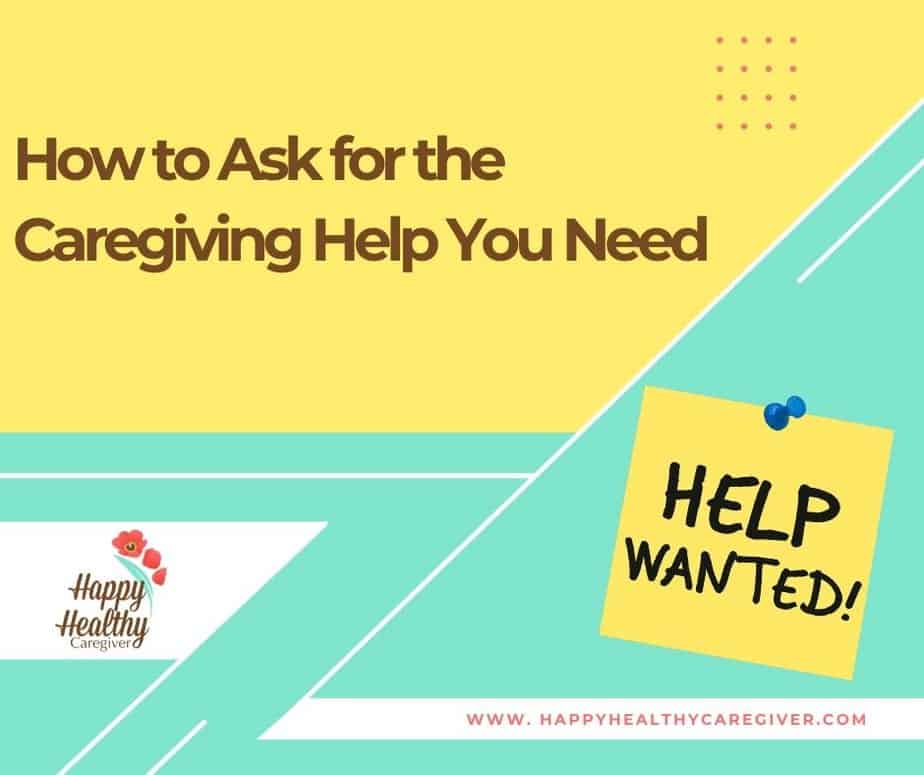
Be Specific About the Help You Need or Can Offer
While each of us is on a slightly different caregiving path, we likely can all agree that caregiving is overwhelming and isolating. We need physical and emotional support, whether we like to admit it.
When I became a primary caregiver for my mom, I didn’t give up any responsibilities; I just layered more on my already heaping plate. Knowing what I know now, I recommend my caregiving clients assess their family, career, and caregiving responsibilities.
The divide and conquer or ‘share the care’ approach for caregiving creates a happy and healthy caregiving system. Caring for a loved one is a team effort, and many hands make light work. This mindset creates time for self-care activities which ensures caregiving is sustainable and reduces the risk of caregiver burnout.
I believe people do generally want to help a family caregiver. They just cannot read minds to see where their hands could be helpful. As family caregivers, we must be specific about the help we need, AND we also must welcome whatever offered support, even if it is different than what we may think we want.
What Specific Help Do We Need?
Once we see the value in getting help, the next step is to evaluate the kind of help needed. Each situation is different; however, some of the examples provided below can help you create your specific list of needs.
We need help with the family responsibilities
Sometimes delegating or asking for help related to caregiving can be difficult, especially initially when you are trying to get some systems and routines set up. Instead, you may find it easier to ask for help with family and household responsibilities.
Help with the family responsibilities may include:
- Maintaining the yard
- Taking children to and from activities
- Ensuring the pets get love and exercise
- Shopping for holiday and birthday gifts
- Cleaning the house
- Keeping up with the laundry
- Cooking meals
- Planning family fun and getaways
We need help with the caregiving responsibilities
Once you are ready to delegate the caregiving responsibilities, create a specific list of tasks where others can assist.
Help with the caregiving responsibilities may include:
- Providing regular companionship, either virtually or in person
- Paying bills
- Communicating with insurance companies
- Researching doctors, treatments, or medications
- Arranging activities and meals
- Providing transportation to medical and personal care appointments
- Preparing taxes
- Purchasing supplies, clothing, or gifts
- Offering respite for the primary caregiver
I Have My Specific List, Now What?
The CircleOf family caregiving app will help connect the support you desire with the people who want to help – your care team of family members, friends, neighbors, professional home health aides, etc.
This free, easy-to-use app, provides the power to organize, collaborate, and request help.
With the CircleOf app, you can consolidate tasks, to-dos, and appointments, so it’s easier to gather help with rides, meals, childcare, home help, doctor visits, and more.
After you download the app, invite your team either by text or email. Remember to include people that live a distance away since many tasks can be completed virtually. Here’s the best part! You can determine the app role for each invitee, based on your relationship and desired level of privacy. Assign them to the ‘Inner Circle’ if you want them to have administrative access to everything, or assign them the ‘Friends & Family’ role if you just want them to volunteer or create tasks.
Then, once you start identifying your tasks or appointments, you can indicate which role can view them. This way, you get to decide which team members receive what information. Because CircleOf knows that we have those people in our lives whom we don’t mind seeing our messy house, and others whom we’d prefer to leave a meal at the door.
After you create the initial team, start to add in your specific list of family and caregiving responsibilities and any upcoming appointments (these can be for pets and childcare, too!). Indicate any pertinent details and how many volunteers are needed. That’s it!
Now your circle has the information they need to volunteer to help, and you can see who is now responsible for each task or appointment. It helps you get organized with your needs and takes a lot of the burden off of asking individuals for help. It’s like putting out the “Bat-Signal” to summon support from your whole network!
BONUS! The App Does More Than Coordinate Help
While the ease of coordinating help is the primary feature of the CircleOf family caregiving app, it does even more.
The Circleof app provides a flexible private communication function to streamline your communication. No need to have multiple text threads to update different groups of people in your life. Again, the roles previously established among your circle give you control to flow the information to your inner circle and your extended friends and family. Free video call capability is also available in the app.
Because with caregiving, things can change in a heartbeat, the app helps keep everyone in the loop with mobile, real-time, and/or email communications.
CircleOf also offers a Resource Center to connect family caregivers with helpful information, services, and products, such as:
- Reputable organizations focused on common diseases and conditions
- Access to the Caregiver Action Network’s help desk
- Tips on how to access state support in acquiring assistive technology
- A directory for Aging Life Care Experts
- Registration information for upcoming caregiving events
- Guidance on end-of-life planning
- Books, films, and radio programs
- A quick link to the Happy Healthy Caregiver coaching resources and podcast
After reading this, I hope you are inspired to request help and surround yourself with a caring circle of friends and family. If you don’t already have a successful system in place, try using the CircleOf app as your caregiving command center. The work you do as a caregiver is valuable, and it deserves to be visible so you and the loved one you care for receive the support you need!

